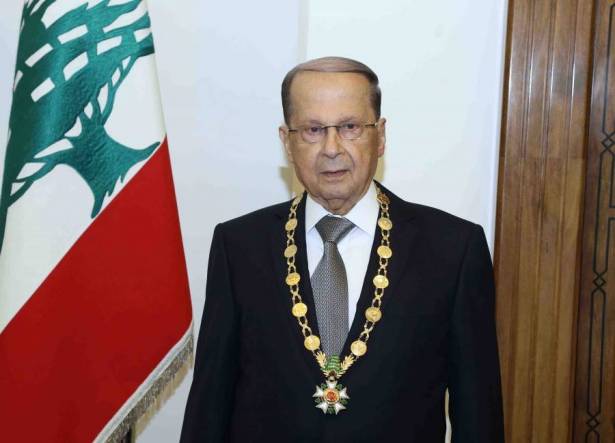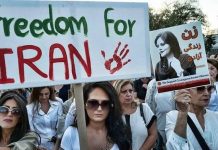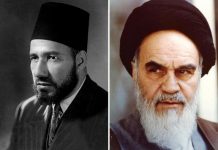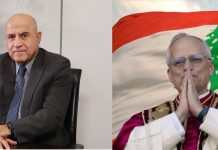Michel Aoun moves to save his presidency
Michael Young/The National/May 24/17
Lebanon is nearing the end of parliament’s term on June 30 without any agreement over a new election law. Hovering over the current impasse lies a more disturbing reality. Hizbollah, Lebanon’s strongest party, has used the discord over the law to undermine any chance for the Lebanese state to consolidate its authority at the party’s expense.
A simple logic sustains Hizbollah: an unaccountable armed group beholden to an outside power (Iran) can only thrive when the state is dysfunctional. Therefore, whatever undermines Lebanese institutions, above all elections, plays to the party’s advantage, so that Hizbollah’s independence becomes easier when the state is ineffective.
After the end of president Michel Suleiman’s term in 2014, Hizbollah helped prolong the presidential vacuum by supporting the candidacy of Michel Aoun, knowing it would divide the political class. That Mr Aoun was elected last October only occurred because his rivals reversed themselves and supported his candidacy to end the two-year void.
Paradoxically, though Mr Aoun is an ally, Hizbollah views his presidency as a potential threat. If the president helps reinforce the state’s authority, this could harm the party’s interests. That is why in recent months it decided to back a new election law based on proportional representation. Hizbollah’s calculation was that if its rivals accepted such a law, they would be weakened politically; and if they continued to resist it, the Lebanese vacuum would be prolonged, giving it wide latitude to pursue its agenda.
The debate over a proportional law has divided Lebanon’s politicians, in large part because many would have their political representation in parliament reduced if such a system were introduced. A proportional system would replace the winner-takes-all format of the current election law of 1960, allowing less influential representatives to enter parliament.
Two politicians in particular, Saad Hariri and Walid Jumblatt, could be expected to lose ground. Hizbollah would welcome this, as it regards both men as among its principal Lebanese opponents.
At the same time, Hizbollah doesn’t expect that it would lose much Shia support because of proportionality. The party and its ally the Amal movement together control a vast majority of Shia votes. The result of a proportional law, therefore, would probably be a united Shia parliamentary bloc facing rival political leaders who, though they may be dominant in their own communities, would no longer have the same hold over all candidates in their electoral districts as is the case under the 1960 law.
Initially, Mr Aoun and his Maronite Christian ally Samir Geagea facilitated Hizbollah’s efforts by staunchly opposing the 1960 law even before a replacement could be found. By doing so they allowed the party to hold tough on a proportional law and block the road of those who argued that in the absence of a consensus on a proportional law, Lebanon should return to the still-operative 1960 law.
Neither Mr Aoun nor Mr Geagea was trying to make Hizbollah’s obstruction any easier. Rather, both men were playing to their Christian bases, which oppose the 1960 law because they feel it gives too much latitude to Muslim politicians to pick Christian candidates for their electoral lists. In light of this they both refused to vote in favour of a new parliamentary extension, arguing there was time to reach a compromise.
When this proved impossible, Mr Aoun engaged in a major turnaround of his own. On Tuesday, he stated that unless a new law was agreed, a return to the 1960 law was inevitable. His remarks, made in front of representatives of the press association, were aimed at averting a vacuum that could undermine his own presidency. Mr Aoun finally seemed to recognise the real dangers that would accompany further disagreement.
One of them is that Lebanon is in dire economic straits. The possibility of more institutional stalemate worries investors and the spectre of economic collapse has begun to rear its head. Six years of conflict in Syria has ravaged the economy, burdening it with some 1.5 million Syrian refugees. The empty manoeuvres of the political class are only making matters worse, eroding any international commitment to Lebanon.
Though Mr Aoun has preserved his ties with Hizbollah, he is not willing to do so at the expense of his own presidential mandate. Moreover, the president may recall that in the elections of 2005 and 2009, he won historically large parliamentary blocs under the 1960 law.
If his statements this week pave the way for an election within three months following the end of parliament’s term, then Mr Aoun will have sidestepped a debacle that Hizbollah seemed so keen to allow.
Perhaps Mr Aoun realised that the party, in wanting a weak state, might have brought Lebanon very close to ensuring that there was no state left to weaken. His revival of the 1960 law was nothing less than an effort to save his own presidency. We’ll soon see if he can succeed.
**Michael Young is a writer and editor in Beirut





















